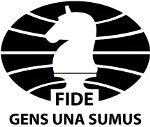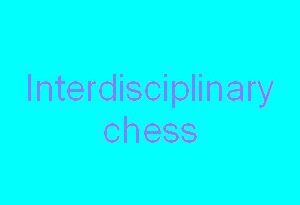Chess as old as mathematics
by Dr. Uvencio Blanco Hernández

“Mathematics has been essential for advances in philosophy, science and technology. The origin of chess seems to be submerged in the darkness of time, although there is archaeological evidence that allows us to have references to it in the Ancient East”.
Mathematics and chess; in that order
Mathematics has an origin as old as humanity itself. Records show that, since ancient times, mathematics has been essential to advances in philosophy, science and technology. It has evolved from simple counting, measurement and calculation, through the systematic study of the shapes and motions of physical objects, through the application of abstraction, imagination and logic, to the broad, complex and often abstract discipline we know today.
Some authors argue that, from the bones carved by early man to the mathematical advances stimulated by settled agriculture in the valleys of Mesopotamia and Egypt, as well as the revolutionary developments of ancient Greece and its empire, the history of mathematics is a long and impressive one.
The East took over, in particular China, India and the medieval Islamic empire, before the focus of mathematical innovation returned to Europe in the late Middle Ages and Renaissance. Then a whole new series of revolutionary developments took place in 17th and 18th century Europe, laying the foundations for the increasing complexity and abstraction of 19th century mathematics, and finally the bold and sometimes devastating discoveries of the 20th century.
On the other hand, with respect to chess, historians still argue about the date of birth of this ingenuity of the human mind. Some claim that the game is at least 1,500 years old; others double that to 3,000. And although the origin of this game seems to be submerged in the obscurity of time, there is archaeological evidence that allows us to have references to it in the Ancient East.
This Eastern contribution, similar in some aspects to that given to mathematics during the first millennium of our Era, comes from four different cultural centres: Egyptian, Indian, Arab and Chinese; also dissimilar in value and influence.
Chess, mathematics and education are interrelated
Among the games associated with mathematics and about which there are countless educational experiments. For example, in research entitled “Your move: The effect of chess on mathematics test scores” by Michael Rosholm, Mai Bjørnskov Mikkelsen, Kamilla Gumede in 2017, these researchers suggest the importance of cognitive and non-cognitive factors in students’ academic success. Furthermore, they support the hypothesis that chess introduced into the academic curricula of children and young people in primary and secondary school is important; as chess uses similar approaches and reasoning as mathematics, chess has become a fundamental pedagogical tool in schools and colleges helping students to develop their skills and competences.
In the same sense Martínez-Artero, R. N., & Checa, A. N. (2015) consider that:
“Chess is a game that can be taught to students in the first years of schooling. Hence, future teachers should know some techniques to carry it out and due to the parallelism it has with mathematics, it can be used as a resource in its teaching-learning. The board itself provides support for activities such as counting, placing pentominoes on it, using the movements of the knight, king, rook, bishop and queen”.
Now, why do we suggest that teachers use chess as a didactic resource in the development of mathematics courses? We make this suggestion based on studies that tell us that chess, being a game, the positioning before it is different due to a greater motivation, greater participation, less tension or stress for learning and for being fun. In this sense, the experience could be placed in a constructivist conception and of a greater interaction throughout the teaching-learning process.
Finally, we must inform that this type of experience focuses on the domain of “Problem Solving”, although it does touch on aspects such as the introduction and reinforcement of concepts.
Source:
Blanco, U. 2020. “Chess cultural heritage of humanity. Amazon
Martínez-Artero, R. N., & Checa, A. N. (2015). Chess as a didactic resource in the teaching-learning of Mathematics. Números, 89, 9-31.


